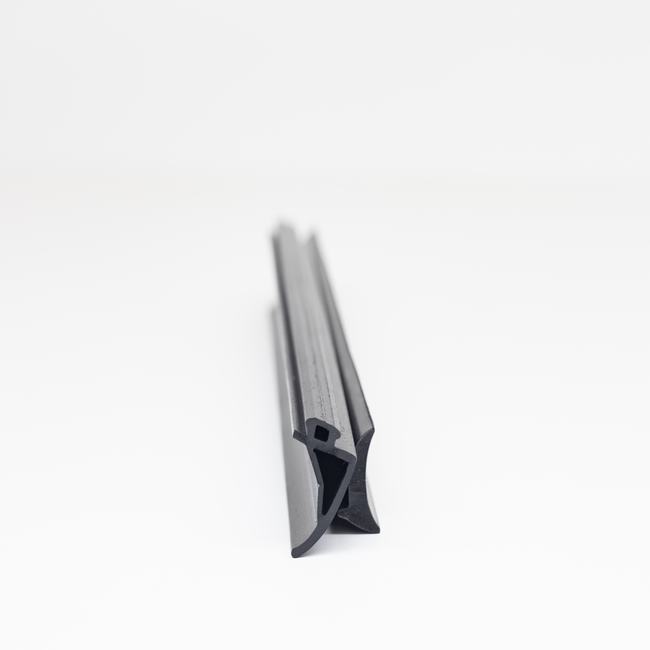Industrial seals are essential components used in a wide range of industrial applications to ensure the integrity, functionality, and safety of various systems and equipment. These seals serve to prevent the leakage of fluids, contain pressure, protect against environmental elements, and maintain the efficiency and reliability of machinery and processes. This comprehensive description provides an in-depth understanding of industrial seals, including their types, functions, materials, and applications.
Types of Industrial Seals:
- O-Rings: O-rings are one of the most common types of industrial seals. They are circular or torus-shaped rubber or elastomeric rings that create a tight seal when compressed between two mating surfaces. O-rings are versatile and used in a wide range of applications, from hydraulic systems to plumbing.
- Gaskets: Gaskets are flat seals made from materials like rubber, cork, or metal, placed between two surfaces to create a barrier against leakage. They are commonly used in flanged connections, pipeline joints, and engine components.
- Mechanical Seals: Mechanical seals are used in rotating equipment like pumps and compressors to prevent the leakage of fluids. They consist of stationary and rotating components that maintain a seal under the influence of both mechanical and hydraulic forces.
- Lip Seals (Oil Seals): Lip seals, often referred to as oil seals, are used to prevent the leakage of lubricants or fluids in rotary shaft applications. They have a flexible lip that comes into contact with the rotating shaft to provide a dynamic seal.
- V-Rings: V-rings are used to seal rotary shafts and are particularly effective at preventing the ingress of dust and debris. They have a V-shaped profile that provides a self-sealing effect.
- Hydraulic Seals: Hydraulic seals are designed for use in hydraulic systems to prevent fluid leakage, typically in cylinders and valves. They include rod seals, piston seals, and wiper seals.
- Pneumatic Seals: Pneumatic seals are used in pneumatic systems to prevent air leakage. They come in various shapes and sizes, including piston seals, rod seals, and o-rings.
Functions of Industrial Seals:
- Fluid Containment: The primary function of industrial seals is to prevent the leakage of liquids or gases, ensuring that fluids remain contained within a system or equipment.
- Pressure Regulation: Seals are crucial for maintaining pressure integrity in various systems, such as hydraulic and pneumatic systems, to ensure proper functioning and safety.
- Environmental Protection: Seals protect systems from environmental factors like moisture, dust, and contaminants, which can otherwise cause corrosion, contamination, and reduced efficiency.
- Friction Reduction: Some seals, such as lip seals and oil seals, help reduce friction and wear by providing lubrication and preventing the loss of lubricants in rotating machinery.
- Safety: Seals are critical in high-pressure and high-temperature applications to prevent catastrophic failures and protect the safety of personnel and equipment.
Materials Used in Industrial Seals:
- Rubber: Elastomeric materials like nitrile rubber, silicone, and EPDM are commonly used in O-rings and gaskets due to their flexibility and resistance to various fluids and temperatures.
- Metal: Metal seals are often used in high-pressure and high-temperature applications. Common materials include stainless steel, copper, and aluminum.
- Plastic: Plastic seals are lightweight and corrosion-resistant, making them suitable for specific applications. Materials like PTFE (Teflon) and polyurethane are used in plastic seals.
- Fiber: Gaskets and packing seals may be made from materials like cork, paper, and fiberglass, which offer good sealing properties and can be customized to suit different requirements.
Applications of Industrial Seals:
- Automotive Industry: Seals are used in engines, transmissions, and hydraulic systems to prevent fluid leakage and maintain the performance of vehicles.
- Aerospace Industry: Aerospace applications rely on seals to maintain the integrity of aircraft systems, ensuring safety and performance.
- Oil and Gas Industry: Seals are used in valves, pumps, and drilling equipment to prevent leakage of hazardous fluids and gases.
- Manufacturing and Machinery: Industrial machinery, such as pumps, compressors, and hydraulic presses, use seals to maintain efficiency and reduce wear and tear.
- Food and Pharmaceutical Industry: Specialized seals are used in these industries to maintain product integrity and comply with hygiene standards.
- Chemical Industry: Seals are employed in corrosive and high-pressure environments to prevent leakage of hazardous chemicals.
- Construction and Infrastructure: Seals are used in building construction, pipelines, and infrastructure projects to prevent water and environmental ingress.
In summary, industrial seals are critical components in various industrial applications, ensuring the integrity, safety, and performance of systems and equipment. Their diverse types, functions, materials, and applications make them indispensable in a wide range of industries, contributing to the efficiency and reliability of processes and machinery.


